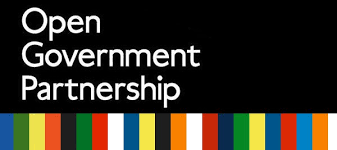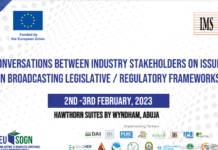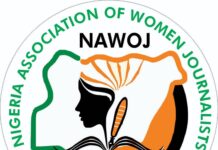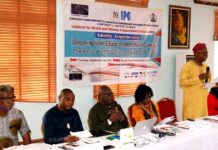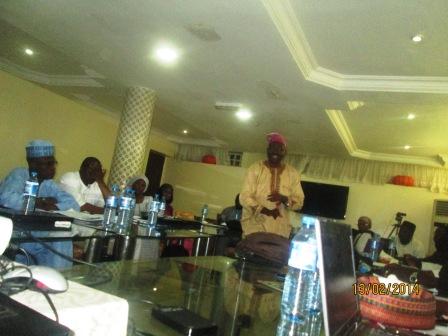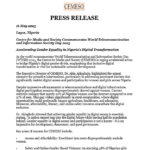Training of Trainers Workshop on the Open Government Partnership (OGP) for Civil Society Organizations (CSOs) in Nigeria Organized by the United Nations Development Programme (UNDP) In partnership with Media Rights Agenda (MRA) At the Bolton White Hotel, Abuja on July 10 and 11, 2017
Introduction:
A two-day Training of Trainers Workshop on the Open Government Partnership (OGP) for Civil Society Organizations was organized by the United Nations Development Programme (UNDP) in Nigeria, in partnership with Media Rights Agenda (MRA) at the Bolton White Hotel in Abuja on July 10 and 11, 2017.
The workshop was attended by about 40 participants drawn from civil society organizations across Nigeria and was sponsored by the UNDP under the EU-funded Project on “Support to Anti-Corruption in Nigeria”, which is aimed at strengthening Anti-corruption Agencies (ACAs) and Civil Society Organisations (CSOs) coordination and effectiveness in the fight against corruption in Nigeria.
The objectives of the workshop were:
- To bring together diverse CSOs to sensitize them about the OGP, how it operates, and their role in the effective implementation of Nigeria’s OGP National Action Plan (NAP).
- To encourage and facilitate more civil society engagement in the OGP process by sharing information about OGP structures, engagement tools and mechanisms as well as other OGP resources which will enable civil society organizations become more effective in their engagement of the OGP; and
- To develop strategies and approaches for civil society engagement of the OGP process at the national and sub-national levels.
At the end of the workshop, the participants adopted this communiqué, with the following observations and recommendations:
Observations;
The participants observed as follows:
- The OGP is a powerful, positive global movement promoting openness, citizen participation and deeper democracy and stands as a countervailing force against the rise of closed government;
- The OGP process, having been founded on the principle of partnership between Government and civil society on an equal footing, presents enormous opportunities for civil society actors to effectively engage with government to bring about governance reforms.
- The OGP provides opportunities for CSO representatives as well as for government officials to participate in peer learning and information-sharing through debates, discussions, training workshops, co-creation events, summits, and other such activities at national, regional and international levels, taking place in the offline environment, online and on digital platforms.
- The OGP holds a lot of benefits for Nigeria and its citizens as it seeks to improve public participation in governance, enable the fight against corruption, harness innovation as well as use new and emerging technologies to strengthen governance.
- There is an urgent need to get more state governments involved in the OGP process as this could ultimately reflect positively on Nigeria as one of the success stories of the OGP in Africa.
- It is now the responsibility of Nigerians, including CSOs, to turn Nigeria’s OGP NAP, which was described as “transformative” at the fourth OGP Global Summit held in Paris, France, last December, into action and “to walk the talk”.
Recommendations:
- The participants called on the civil society community to recognize the opportunity that the OGP presents to them to make greater impact on governance and to take full advantage of the partnership to get their reform proposals onto the national agenda;
- They also urged civil society actors to take full advantage of the OGP by empowering themselves with information and knowledge about the OGP and the reform issues, and vigorously engaging the processes.
- The participants suggested that since Nigeria is a federation, the reforms at the national level should be encouraged in all other federating units, especially the states, to enable them open up their activities to public scrutiny; increase mutual trust between the government and the people; and to attract increased investment and development funds.
- They observed that although Kaduna and Ogun States had indicated interest in joining the OGP initiative, most states had not yet done so, making it imperative for the Nigerian Governors Forum (NGF) to encourage peer learning so that states can learn from one another.
- They suggested the convening of a workshop on “Sub-national Implementation Pathway” of the OGP for the Nigerian Governors Forum as an approach to getting more States to get on board the OGP initiative.
- The participants called on other CSOs in Nigeria to engage the OGP process, as each CSO can identify its entry points by selecting one or more of the 14 commitments in Nigeria’s NAP for engagement and decide whether to be involved in the implementation of the activities outlined under the commitment or only in monitoring the implementation of the activities.
- They also urged CSOs to select one or more government agencies for advocacy engagement to get them to institute transparency and accountability measures as well as other governance reforms.
Kehinde Osotimehin-Olorunleke Edetaen Ojo
CSO Expert – Anticorruption Executive Director
EU Funded Project on Support to Anticorruption in Nigeria Media Rights Agenda (MRA) &
United Nations Development Programme (UNDP) Co-Chair, OGP Nigeria


